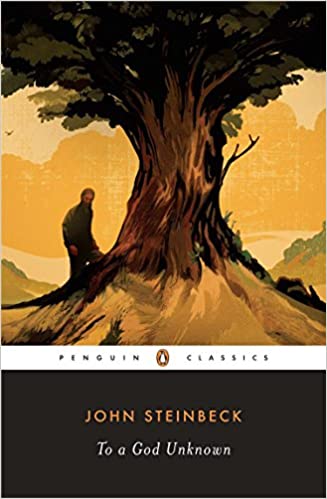

After their marriage in 1930, he and Carol settled, rent-free, into the Steinbeck family's summer cottage in Pacific Grove, she to search for jobs to support them, he to continue writing.

In the late 1920s, during a three-year stint as a caretaker for a Lake Tahoe estate, he wrote several drafts of his first novel, Cup of Gold (1929) about the pirate Henry Morgan, and met the woman who would become his first wife, Carol Henning, a San Jose native. Those relationships, coupled with an early sympathy for the weak and defenseless, deepened his empathy for workers, the disenfranchised, the lonely and dislocated, an empathy that is characteristic in his work.Īfter leaving Stanford, he briefly tried construction work and newspaper reporting in New York City, and then returned to his native state in order to hone his craft. From 1919 to 1925, when he finally left Stanford without taking a degree, Steinbeck dropped in and out of the University, sometimes to work closely with migrants and bindlestiffs on California ranches.

Writing was, indeed, his passion, not only during the Stanford years but throughout his life. He was a writer, but he was that and nothing else" (Benson 69). The President of the English Club said that Steinbeck, who regularly attended meetings to read his stories aloud, "had no other interests or talents that I could make out. To please his parents he enrolled at Stanford University in 1919 to please himself he signed on only for those courses that interested him: classical and British literature, writing courses, and a smattering of science. Respectable Salinas circumscribed the restless and imaginative young John Steinbeck and he defined himself against "Salinas thinking." At age fourteen he decided to be a writer and spent hours as a teenager living in a world of his own making, writing stories and poems in his upstairs bedroom. While the elder Steinbecks established their identities by sending roots deep in the community, their son was something of a rebel. Steinbeck a member of the Order of the Eastern Star and founder of The Wanderers, a women's club that traveled vicariously through monthly reports. Never wealthy, the family was nonetheless prominent in the small town of 3,000, for both parents engaged in community activities. The observant, shy but often mischievous only son had, for the most part, a happy childhood growing up with two older sisters, Beth and Esther, and a much-adored younger sister, Mary. "I remember where a toad may live and what time the birds awaken in the summer-and what trees and seasons smelled like." "I remember my childhood names for grasses and secret flowers," he wrote in the opening chapter of East of Eden. As a child growing up in the fertile Salinas Valley -called the "Salad Bowl of the Nation" - Steinbeck formed a deep appreciation of his environment, not only the rich fields and hills surrounding Salinas, but also the nearby Pacific coast where his family spent summer weekends. His mother, the strong-willed Olive Hamilton Steinbeck, was a former teacher. His father, John Ernst Steinbeck, was not a terribly successful man at one time or another he was the manager of a Sperry flour plant, the owner of a feed and grain store, the treasurer of Monterey County. John Steinbeck was born in the farming town of Salinas, California on 27 February 1902.
JOHN STEINBECK FAMOUS BOOKS SERIES
Readers trust the series to provide authoritative texts enhanced by introductions and notes by distinguished scholars and contemporary authors, as well as up-to-date translations by award-winning translators.Steinbeck in 1909 with his sister Mary, sitting on the red pony, Jill, at the Salinas Fairgrounds. With more than 1,700 titles, Penguin Classics represents a global bookshelf of the best works throughout history and across genres and disciplines. From the tale of commitment, loneliness and hope in Of Mice and Men, to the tough yet charming portrait of people on the margins of society in Cannery Row, to The Pearl’s examination of the fallacy of the American dream, Steinbeck stories of realism, that were imbued with energy and resilience.įor more than seventy years, Penguin has been the leading publisher of classic literature in the English-speaking world. A Penguin Classics Deluxe Edition of Steinbeck’s brilliant short novelsĬollected here for the first time in a deluxe paperback volume are six of John Steinbeck’s most widely read and beloved novels.


 0 kommentar(er)
0 kommentar(er)
